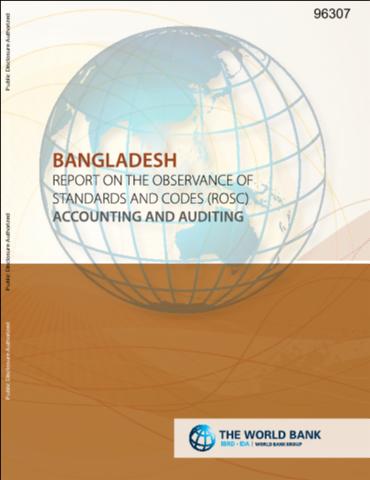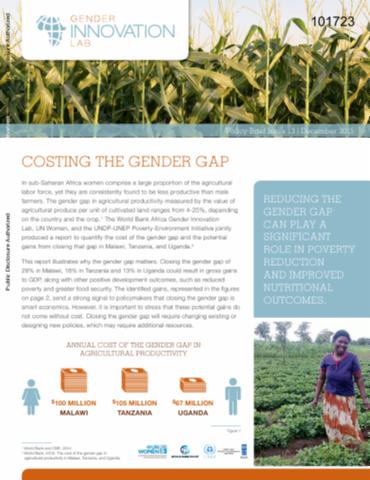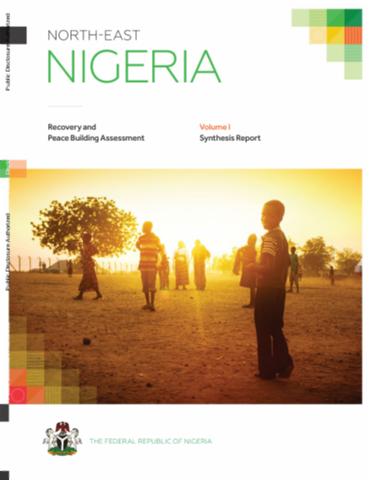The World Bank is a vital source of financial and technical assistance to developing countries around the world. We are not a bank in the ordinary sense but a unique partnership to reduce poverty and support development. The World Bank Group has two ambitious goals: End extreme poverty within a generation and boost shared prosperity.
- To end extreme poverty, the Bank's goal is to decrease the percentage of people living on less than $1.25 a day to no more than 3% by 2030.
- To promote shared prosperity, the goal is to promote income growth of the bottom 40% of the population in each country.
The World Bank Group comprises five institutions managed by their member countries.
The World Bank Group and Land: Working to protect the rights of existing land users and to help secure benefits for smallholder farmers
The World Bank (IBRD and IDA) interacts primarily with governments to increase agricultural productivity, strengthen land tenure policies and improve land governance. More than 90% of the World Bank’s agriculture portfolio focuses on the productivity and access to markets by small holder farmers. Ten percent of our projects focus on the governance of land tenure.
Similarly, investments by the International Finance Corporation (IFC), the World Bank Group’s private sector arm, including those in larger scale enterprises, overwhelmingly support smallholder farmers through improved access to finance, inputs and markets, and as direct suppliers. IFC invests in environmentally and socially sustainable private enterprises in all parts of the value chain (inputs such as irrigation and fertilizers, primary production, processing, transport and storage, traders, and risk management facilities including weather/crop insurance, warehouse financing, etc
For more information, visit the World Bank Group and land and food security (https://www.worldbank.org/en/topic/agriculture/brief/land-and-food-security1
Resources
Displaying 566 - 570 of 4907Linking Farmers and Agro-processors to the Tourism Industry in the Eastern Caribbean
The main objective of this Economic and Sector Work (ESW) is to identify opportunities for stronger linkages between domestic agricultural supply chains and the tourism sector in the OECS, and to outline priority interventions with potential to strengthen these linkages. Since this topic has been analyzed in a number of studies, the approach for this ESW is not to conduct yet another comprehensive study.
Confronting complexity : using action-research to build voice, accountability, and justice in Nairobi's Mukuru informal settlements
The Constitution of Kenya (2010) has provided the means for confronting new challenges to evictions and access to justice faced by vulnerable groups such as the residents of Mukuru. New jurisprudence has begun to emerge, addressing the human rights implications of evictions. Project researchers along with the Katiba Institute and Strathmore University’s School of Law work closely with the community to investigate different existing tenure arrangements in Mukuru to determine how the Constitution and land laws can be used to address challenges related to insecure land tenure.
Bangladesh Report on the Observance of Standards and Codes
The Report on the Observance of Standards and Codes - Accounting and Auditing (ROSC A&A) program is part of a 12-module joint World Bank-IMF initiative to assist member countries to strengthen their financial systems by improving their capacity to comply with internationally recognized standards and codes. The ROSC A&A program focuses on the institutional framework underpinning national accounting and auditing practices, and degree of conformity with international standards and good practices.
Costing the Gender Gap
In sub-Saharan Africa women comprise a large proportion of the agricultural labor force, yet they are consistently found to be less productive than male farmers. The gender gap in agricultural productivity-measured by the value of agricultural produce per unit of cultivated land-ranges from 4-25 percent, depending on the country and the crop.1 The World Bank Africa Gender Innovation Lab, UN Women, and the UNDP-UNEP Poverty-Environment Initiative jointly produced a report to quantify the cost of the gender gap and the potential gains from closing that gap in Malawi, Tanzania, and Uganda.
North-East Nigeria Recovery and Peace Building Assessment
Since 2009, insecurity in the North-East of Nigeria has led to the loss of over 20,000 lives and the displacement of over two million people. Throughout the region livelihoods have been disrupted, and homes, public buildings and infrastructure destroyed. In a part of Nigeria where 80 percent of people rely on agriculture for their livelihoods, much has been lost. People have been forced from their land and livestock has been killed. In many areas, land mines and other remnants of war bring challenges for safe and voluntary return.










